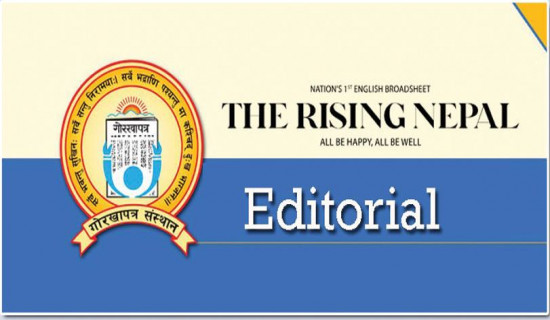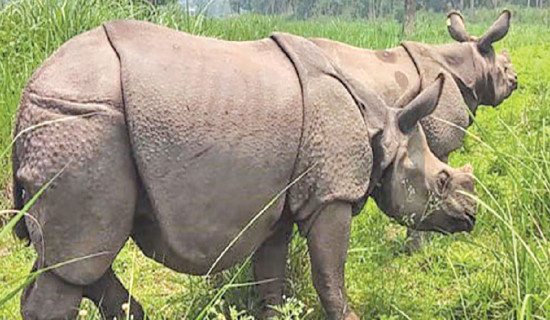- Saturday, 31 January 2026
On The Republican Path
On May 28, 2008, the first meeting of the first Constituent Assembly (CA) declared Nepal as federal democratic republic. The landmark CA meeting formally abolished the 240-year-old monarchy. It was a defining moment in the history of Nepal. It was a culmination of Nepalis’ relentless struggles spanning over six decades. From this epoch making declaration, Nepali people became the source of sovereignty and master of their own destiny. Fifteen years have elapsed since Nepal became a republican democratic state. The country witnessed two election cycles since the promulgation of the new constitution in 2015. The democratic polls that sent fresh faces into the political system have contributed to consolidating the federal republic. The national charter written by the CA has defined Nepal as a federal, secular and republican state. It is founded on inclusive democracy that brings marginalised communities and regions into the mainstream of political power and national development process.
The notion of republic has gained traction since the ancient times. The term ‘republic’ is derived from the Latin word ‘res publica’ which means ‘public affair.’ Republic is ‘a form of government in which supreme power is held by the people and their elected representatives.’ Nepali people chose this system after the autocratic monarchy failed to address structural injustice pestering Nepali society for many decades. Under the dictatorial monarchy, the modernisation and democratisation processes deep rooted in the public aspirations were suppressed. People had to fight for civil liberties, justice, development and economic prosperity time and again. This wasted the nation’s energy and time meant for progress and advancement for the good of all the people.
The hard won republic aims to make up the lost moments of history to bring about qualitative transformation in the life of people. In the republican system, the people are considered the master of their own destiny. They wield democratic power to form a government and even bring it down if it disregards their genuine concerns. With the deepening of republican order, people’s awareness has also increased considerably. Thanks to the information revolution and mass awareness, people's developmental desires have grown which need to be addressed. Ushering in of the republican system in Nepal is a result of people's sacrifices and struggles. This political revolution vests all power and privileges in the people where a common citizen can rise to become the head of the state.
The federal and provincial elections held last year indicated a shifting voting trend in which the people preferred fresh and alternative forces, particularly in the urban areas. The polls gave a clear message to the political parties to promote internal democracy and ensure intergenerational justice. It is a beauty of democratic republic that the people throw out corrupt leaders through peaceful means of ballots. Today the republican system has confronted many challenges and voice of opposition from anti-republican forces. The anti-systemic forces are trying to prove their utility cashing in on the people’s frustration over the poor delivery of goods and services. The political parties should rise above the parochial interests and develop minimum understanding to institutionalise the system as per the spirit of national charter. Republican democracy matures and institutionalises through the implementation of the constitution, people's political exercise in periodic elections and delivery of the fruits of development to all.
As the republican democratic setup advances on the path of institutional strenmgthening, it is imperative for the political stakeholders to create common ground on the matters pertaining to national security, territorial integrity, economic development and foreign policy. As the country is reeling from economic hardships, the parties should come together to resolve the common problems of the people. The republican polity functions and deepens when the citizens actively participate in the political process. The political leadership should also embrace civic virtues, and constitutional conduct.

















